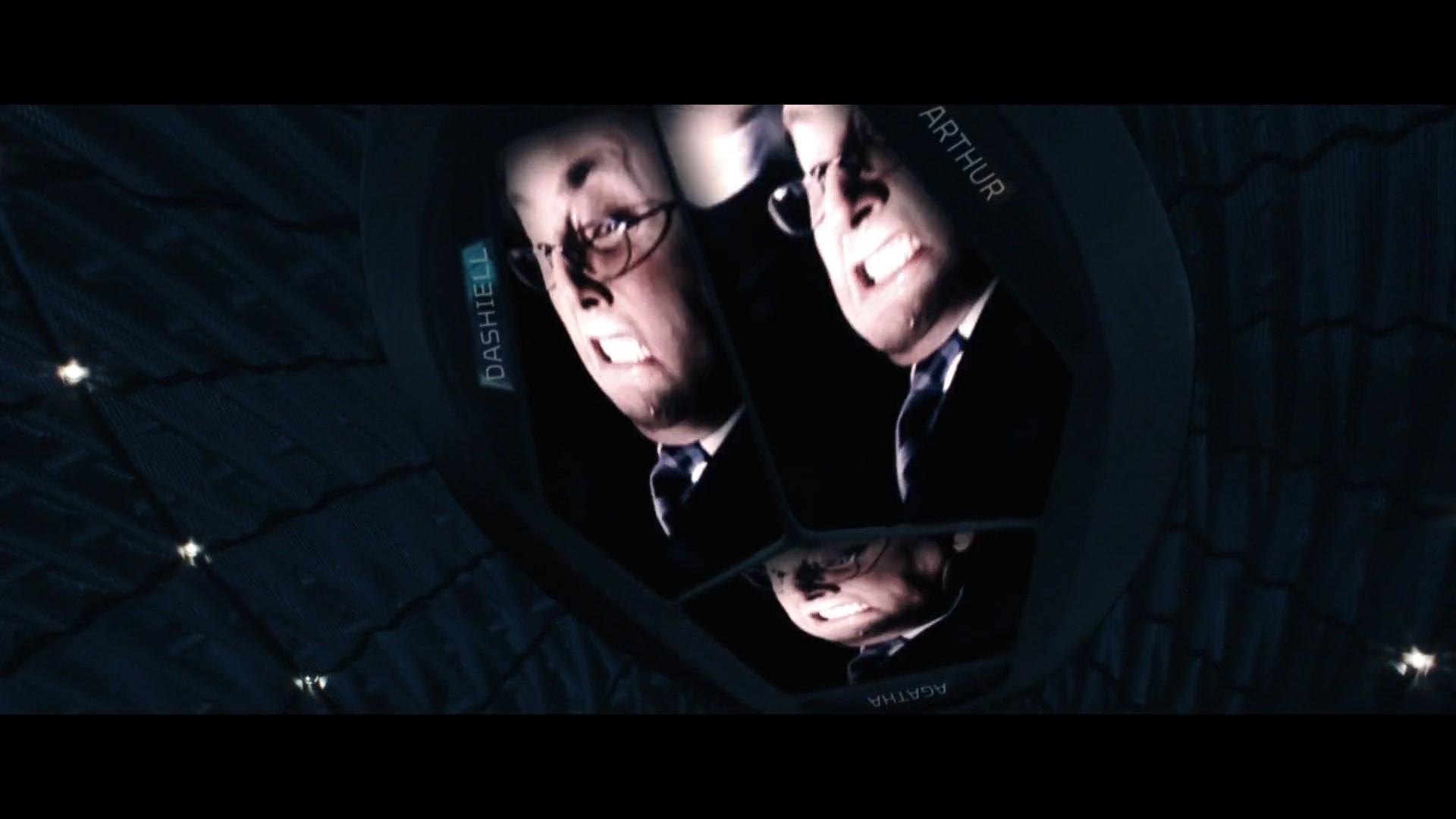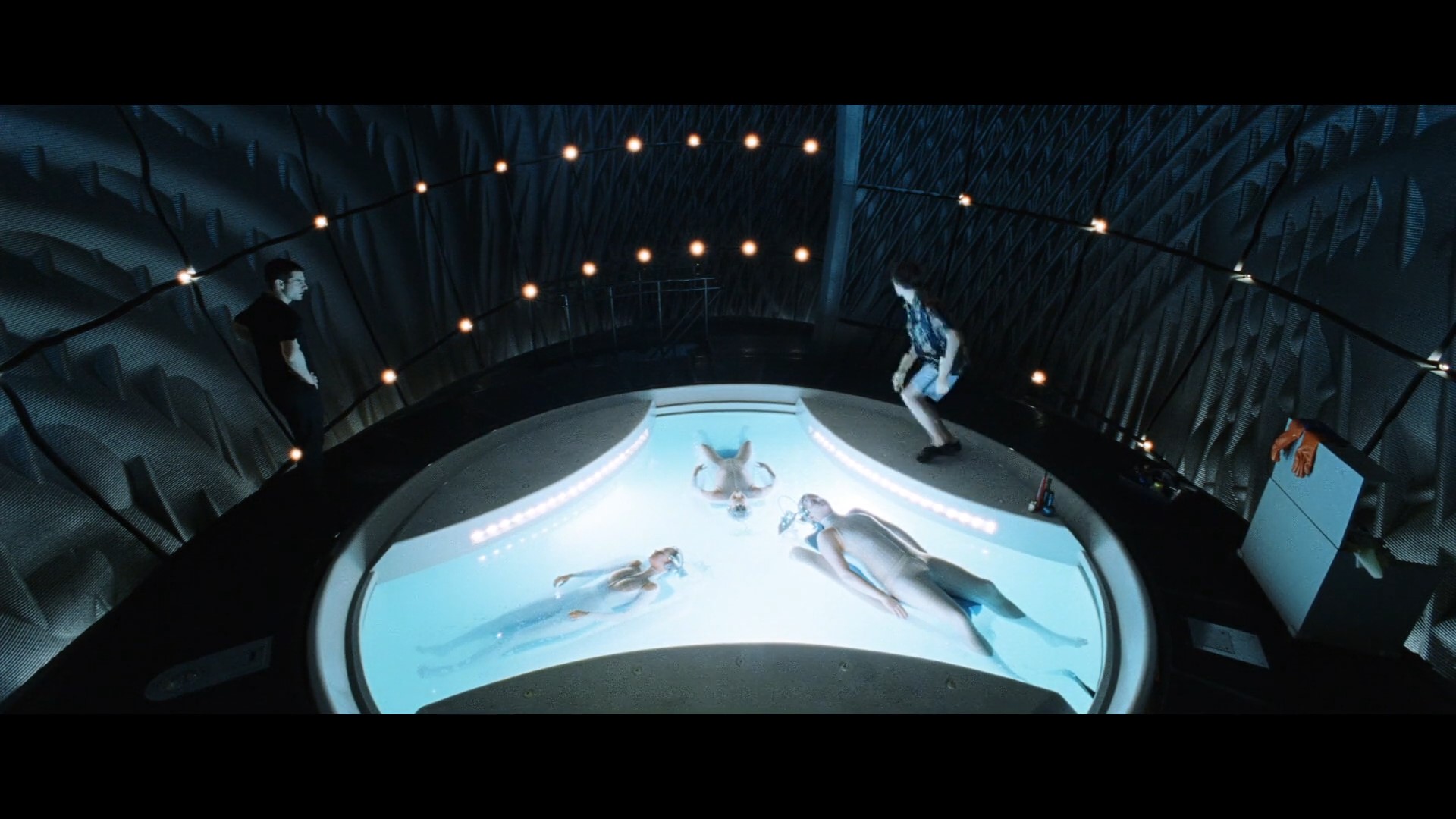I watched the movie Minority Report, and let’s talk about the Pre-crime system in the movie.
Minority Report is a science fiction movie set in the year 2054. The main character, Anderton (Tom Cruise), is the head of the Pre-crime special police unit, a group of unidentified “seers” who predict murders before they happen and arrest suspects before they happen. The movie opens with a husband about to commit murder in a fit of rage after witnessing his wife having an affair with another man, and the Pre-crime detectives, including Anderton, are called in to stop him. Although he later cries out that he didn’t mean to kill, he is ultimately punished by being locked in a capsule, deprived of all freedom of action, including ritualistic drinking.

Personally, out of all the scenes in the movie, this is the one that stuck with me the most and made me think a lot. This is because it was the first time I began to question the validity of the pre-crime system as a way of determining a punishment that can destroy a person’s life.
There is a saying in law that says, ‘If you miss ten guilty people, do not punish one innocent person. This means that since the human-made system of law cannot guarantee its perfection, we should always recognize its imperfections and be vigilant to eliminate innocent harm. However, Pre-crime, which has never been presented before, rejects the imperfections of the system entirely in favor of a system that is highly efficient in reducing crime. The protagonist, Anderton, struggles to show the system’s imperfections in order to prove his innocence, and the conflicts and antagonisms he encounters along the way become a central theme of the movie.
Of course, the Pre-crime system is fictional. The movie is set in the 2050s to soften the blow of the somewhat unscientific setting of a system powered by three prophets. However, even a fictional system has scientific and philosophical implications, so in this article, I will analyze this question scientifically and give my own opinion on the validity of the Pre-crime system.

To conclude, the pre-crime system in the movie is wrong. As we can see in the movie, Detective Anderton, who is named as a suspect in the movie, does not commit the murder in the end, there is clearly an imperfection in the system. While it would be interesting to be able to pinpoint which properties of the system are fundamentally responsible for this imperfection, this article will instead show that the pre-crime system can never be perfect in principle, and deny the movie’s policing order that fully accepts and relies on it.
The principle of indeterminacy, proposed in quantum mechanics, is the theory that in the process of measuring two specific physical quantities, it is impossible to know the exact value of both because the measurement of one will change the other. Of course, this uncertainty does not exist between all physical quantities, but the values of the two physical quantities at the center of Minority Report, present time and future time, seem to be immune to the principle of uncertainty. In other words, when the prophets in the movie predict the future by measuring it, the present is subject to change during the measurement process. The cases of Anderton, who reverses his murder after knowing his future as a murderer, and Lamar Burgess, the director of the Pre-crime system, show that this indeterminacy clearly exists between the variables of present and future.
When there is even a small amount of uncertainty about the future, it seems very risky to make assumptions and introduce extreme punishments for suspects. Consider this scenario. A family head, driven to rage by anger at a gang of robbers who murdered his family, tracks down the gang and kills one of them, only to be killed by another member of the gang. In this case, the three murders are causally linked to each other. According to the Pre-crime system, premeditated crimes can be foreseen four days in advance of the crime, while accidental crimes can be foreseen a few minutes in advance. Therefore, in this case, only the murder of one of the robbers by the head of the household is a premeditated crime, so the head of the household is put on the murderer’s list and arrested before the robbers are foretold to maim the family. Of course, this is wrong.
This error occurs because the system does not properly or at all consider the causality of events. A system that only predicts and prevents murders cannot account for the many variables that make up the cause of an event. Even in extreme cases like this one, a pre-crime system will inevitably have some impact on the people, buildings, and environments around the scene of the crime. If another murder was scheduled to occur at a similar time and in a similar location, the changes in the environment caused by the first murder would certainly have some impact on the new murder. Pre-crime systems appear to ignore this effect or underestimate its magnitude, but it is worth considering whether this is true. In fact, it is entirely possible that a single change in one of the variables that make up the entire causal chain could reverse an event. This can be illustrated by the chaos theory represented by the butterfly effect.
The butterfly effect is the theory that the tiny flutter of a butterfly’s wings as it flies from the other side of the world affects a number of variables on its way back halfway around the globe, and that the effect can grow and grow, eventually causing a typhoon. The reality is that an event has so many variables that comprise it, and it is technically and theoretically impossible to calculate all of their effects, that it is very difficult to predict the outcome in advance. This means that small changes in variables along the way to an event can lead to a completely different outcome.
In the case of the Pre-crime system, every step of the way between measuring (predicting) the future (homicide) and scrambling to prevent it, changes in variables occur that lead to a different future than the one originally predicted. For example, a change in traffic may occur while Pre-crime detectives are on their way, and a suspect who was supposed to be in a situation to commit an impulsive killing may be able to avoid the situation in the first place. An accidental killing is the result of the introduction of a separate variable that has a significant impact on the killing, and any change that alters the introduction of that variable has the potential to avoid the killing. In the case of a pre-crime system, which deals with human rights, which should be respected the most, it seems undesirable to overlook this possibility.
This is why pre-crime systems are wrong. The prediction of an event in the present and the actual occurrence of an event in the future are mutually indeterminate, and the present prediction may affect the future outcome. The causal chain that leads to the outcome of an event is very important because many of the variables that make up this causal chain are subject to change after measurement. As a result, the presence or absence of an event, or the conclusion that a murder must have occurred, can change. Pre-crime systems have a role to play in crime prevention, but their role is largely misplaced in the direction of arresting and punishing criminals in advance. Pre-crime systems should be used in a different way to avoid “punishing the innocent,” as we said in the introduction. This is not to say that we need to abandon its crime prevention function altogether, but we need to recognize the limitations of the system and prevent its malfunctions in advance.
 I’m a blog writer. I want to write articles that touch people’s hearts. I love Coca-Cola, coffee, reading and traveling. I hope you find happiness through my writing.
I’m a blog writer. I want to write articles that touch people’s hearts. I love Coca-Cola, coffee, reading and traveling. I hope you find happiness through my writing.